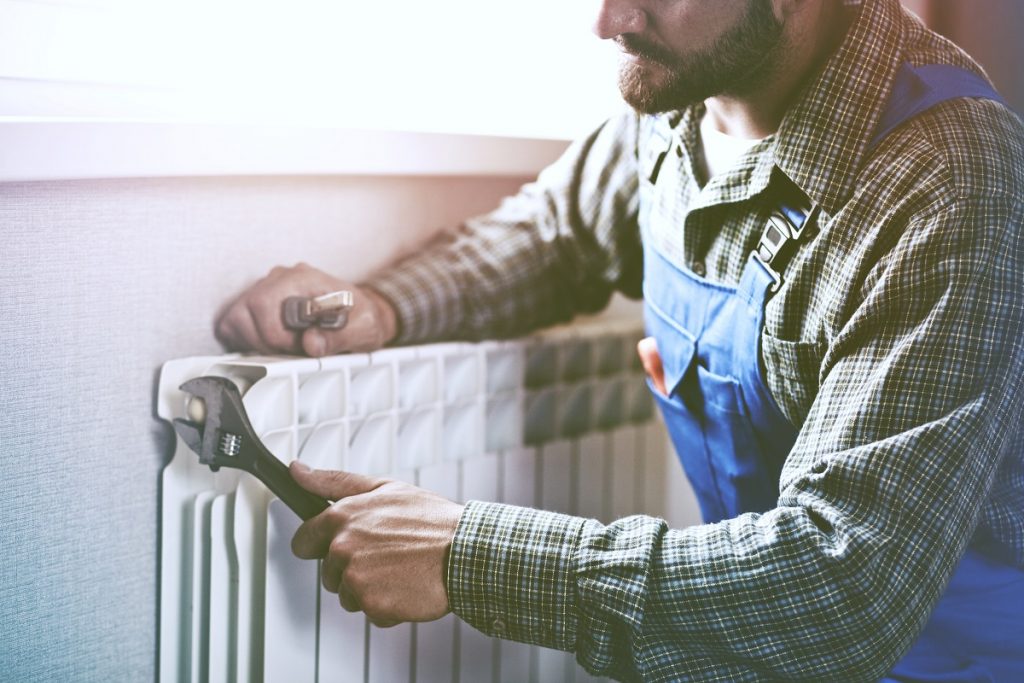- Have a solid plan in place, including budget, materials and services, and timeframe.
- Prioritize repairs and upgrades to get the most out of your investment.
- Have a waste management system including separate recyclables and waste, dumpster rentals, and reused materials whenever possible.
- Be flexible and adaptive to unexpected issues and make changes to the plan if necessary.
So, you’ve decided to get into the fixer-upper home flipping business? While the idea of flipping houses may seem exciting, it can also be daunting, especially if you’re new to the real estate game. However, with proper knowledge and tools, flipping fixer-upper homes can be profitable. Here are some tips on making your renovations more efficient and getting the most out of your investment.
Have a Solid Plan in Place
Before you start making changes to the property, have a clear plan mapped out. A plan will help you stay organized and avoid costly mistakes. It will also help you make informed decisions when it comes to selecting materials and services. Here are some things that you should consider:
Budget
When budgeting for a fixer-upper home, it’s essential to consider the cost of repairs, renovations, and materials. It’s also wise to factor in contingencies such as unexpected expenses or delays that could arise during the renovation process. Additionally, make sure you have enough funds to cover any permits and fees that might be required by your local government.
Materials and Services
When it comes to selecting materials for your renovations, it’s crucial to find the best possible quality at the most affordable price. Similarly, when choosing services such as contractors or plumbers, ensure they are reputable and experienced. It’s also wise to get a few quotes from different service providers so that you can compare prices and services.
Timeframe
Having a realistic timeline in place is vital for any renovation project. Make sure you factor in the time it will take to source materials, obtain permits, and complete the renovations in order to create an accurate timeline. This will help you plan appropriately and avoid costly delays from outside sources such as suppliers or contractors.

Prioritize Repairs and Upgrades
When making renovations to a fixer-upper home, focus on the most critical repairs and upgrades first. Address structural issues, electrical and plumbing systems, and roofing before moving on to cosmetic upgrades.
Prioritizing necessary repairs and upgrades will ensure you don’t overspend on unnecessary changes. For instance, if the roof is in bad shape, investing in new kitchen appliances won’t make sense.
Furthermore, focus on improving the functionality of the home rather than simply making it look aesthetically pleasing. Invest in features that will add real value, such as energy-efficient upgrades or efficient storage solutions.
Have a Waste Management System
Having a waste management system in place is an integral part of making the renovations to a fixer-upper home more efficient. By having waste disposal services, you can ensure that all construction debris will be appropriately disposed of, saving you time and money. Here are some things that you can do to improve your waste management system:
Separate Recyclables and Waste
The waste management system for any fixer-upper home renovation project should always include proper separation of recyclables and waste. Properly separating materials like wood, metal, cardboard, and plastics can help reduce the amount of waste that ends up in landfills and can also be a source of additional income.
Rent a Dumpster
The waste management system for any fixer-upper home renovation project should also include an affordable small rental dumpster. Renting a tiny dumpster can make the process of disposing of construction debris much easier and more efficient. A dedicated container for all the waste helps keep your workspace tidy and safe from potential hazards.
Reuse Materials Whenever Possible
It’s essential to be mindful of how much waste you are generating while renovating a fixer-upper home. Reusing materials like wood, bricks, and other building materials can help reduce the amount of waste that ends up in landfills and also save you money. Whenever possible, try to find ways to reuse items rather than throwing them away.

Be Flexible and Adaptive
Even with a solid plan in place, things can go wrong during renovations. It’s essential to be flexible and adaptive when unexpected issues arise, such as finding mold or needing to replace electrical or plumbing systems.
Being able to adapt to these challenges and make changes to your plan will help you stay on schedule and on budget. Make sure to resolve it quickly so that it doesn’t compromise your timeline.
In some cases, it might even be wise to make changes to your plan that weren’t originally part of the budget. This could include adding extra insulation or upgrading windows and doors for improved energy efficiency.
Flipping fixer-upper homes can be a profitable venture. By having a clear plan, setting realistic renovation goals, prioritizing repairs and upgrades, using quality materials and services, and being flexible and adaptive, you can make your renovations more efficient and get the most out of your investment. Remember, it’s essential to stay organized, focused, and committed to achieving your renovation goals.

